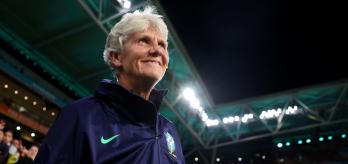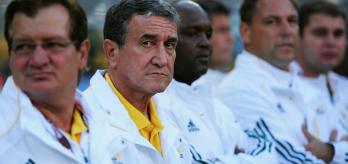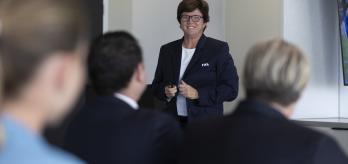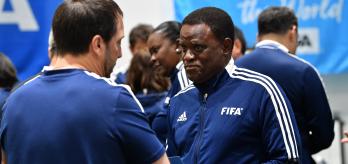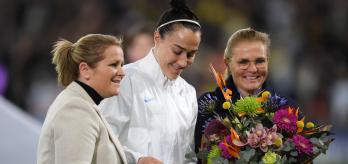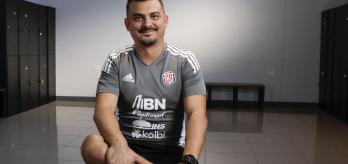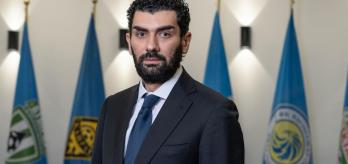“As a coach it is fundamental to respect to be respected,” explains Parreira, who won the FIFA World Cup with Brazil in 1994 and enjoyed a long coaching career including head coach roles with six different national teams. “Human relationships are the same at every level and in every country. You see somebody, you look in their eyes, shake their hand, and speak their name.”
How players were welcomed to each national team camp was a crucial moment for Perreira to display the respect he wanted to be central to the team’s culture. “When they come to the national team, I stay at the door, wait one by one, and say their names. Our name is the most important thing in our life. So, I learn the names, I look at their face, and I always say ‘welcome to the national team again’. This approach helps a lot; very direct, very sincere, it works.”
Use direct and transparent communication
In addition to respectful communication, Parreira believes players also respond best to direct and transparent information from the coach. “Players like the coach to be transparent and to be direct,” he explains. “They don’t like to hear news from others; they like to hear from the coach. I would bring all of the players together and sit with them and tell them ‘you’re going to work in this way for three months, you’re going to be like this’. I would tell them about the team, about the way we would work and the philosophy.”
Uniting all the members of the national team, including the staff and national association executives, was another key step in Parreira’s approach. “The job of the coach is to bring all these individuals together and make them a team,” he explains. “This is up to the coach, your experience, philosophy and how the players take your idea. For me, this is the most difficult part of the job.
“But the good coach, they are talking, convincing, getting results and showing the positive ways. Then it’s important to have individuals and the collective. You don’t win games only with the collective; you don’t win games only with the individuals. You need both combining in the right amount.”
Learning from experience
Parreira was aged 50 when he won the FIFA World Cup with Brazil in 1994 and points toward the many years of experience he had amassed at all levels of the game as vital to helping shape his approach.
“I had 28 years of working football in so many places, so many areas and working with so many coaches. So, I knew a lot of the situations I would have to face,” he explains. “When I was 24 years old, I was selected to be the coach of the Ghana national team by the Brazilian government. So, I was sent to Ghana, I stayed one year, and then I went to study in Germany and in England.
“I was in Sport School in Hannover, and there I learned the importance of the coach to have all these weapons in his career to make him a very good coach. I saw coaches for under 10, under 15, under 18, semi -professional, professional. I was following them in different towns, different cities.”
Part of this experience taught Parreira to immerse himself in the context of a country’s football culture to be successful. “In my career I worked with six different national teams, and I always used this approach,” explained Parreira, who coached Ghana, Kuwait, United Arab Emirates, Brazil, Saudi Arabia and South Africa during his career. “You need to know the country, the culture, and the players. The national coach must go and watch club competitions, see how is the country, how are the spectators, how is the press [media]. There are so many things that go together in a country’s football culture. Then you go to your work.”
Develop relationships with key football stakeholders
After observing a country’s football culture, the head coach should then begin a process of relationship building, says Parreira. “Once I had seen as many football games as I could, seen the spectators, how they behave, how the game was played - the attitude, the speed, the technical level - then I asked for a meeting with all the coaches, first and second division.
“I wanted to share ideas with them about the game and tell them ‘I’m here to help you, together we want to try to develop something interesting’. I also wanted to talk with the captains of the teams, so they could have the feeling of what I’m doing.”
Taking time to build relationships before making changes, was a key strategic approach, explains Parreira. “You cannot come and change everything,” he adds. “You implement your ideas little by little and I think I was very successful in doing this.”











